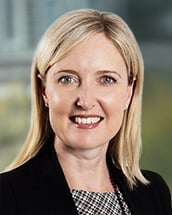In brief
With the rapid rise of environmental consciousness in Australia and abroad, consumer-facing businesses are increasingly making claims about the environmental qualities of their products, services and business operations. While the ACCC has had guidance on the practice of “greenwashing” for some time (link here), policing of environmental and sustainability claims has been a core area of focus for the ACCC in the last 12 months.
In October 2022, the ACCC launched an internet sweep of the websites of 247 businesses in order to identify potentially misleading environmental and sustainability claims. In March 2023, the ACCC released its findings that 57% of businesses reviewed made environmental and sustainability claims that were potentially misleading (see the ACCC’s report here).
On July 14, 2023, the ACCC has released its draft guidance for business on environmental and sustainability claims (Draft Guidance) for consultation, aimed at addressing the ACCC’s concerns arising from its internet sweep. Submissions on the Draft Guidance are due to the ACCC by 15 September 2023.
The Draft Guidance sets out the ACCC’s view on good practice for making environmental and sustainability claims, and identifies the following 8 principles to assist businesses in making claims that comply with the Australian Consumer Law (ACL):
- Make accurate and truthful claims
- Have evidence to back up your claims
- Don’t leave out or hide important information
- Explain any conditions or qualifications on your claims
- Avoid broad and unqualified claims
- Use clear and easy-to-understand language
- Visual elements should not give the wrong impression
- Be direct and open about your sustainability transition
With breaches of the ACL attracting penalties of up to AUD $50M, three times the value of the benefit obtained from the breach, or 30% of the company’s adjusted turnover during the breach period, it is critical for businesses to understand their obligations when making environmental claims.
For advice in navigating risks associated with making environmental claims, or for assistance with submissions on the Draft Guidance, please contact our team of experts.






